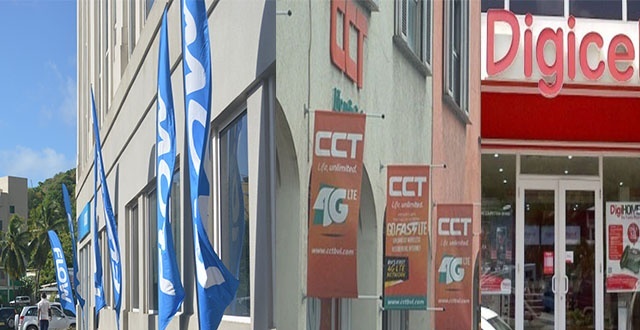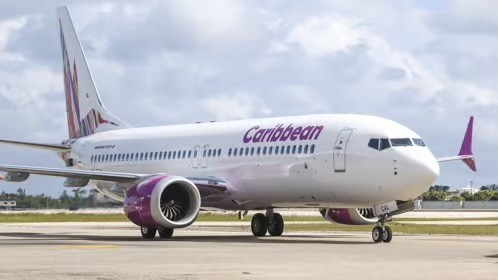
(PLTM) - Back in 2010/2011 when the BVI first decided to establish an Internet Exchange Point (IXP), the Territory was the second country in the English-speaking Caribbean to do so. Now there are approximately 14 other countries with active IXPs, while the BVI is just a little past the starting position.
An Internet Exchange Point (IXP) is a physical infrastructure, through which internet service providers (ISPs) exchange internet traffic between their networks.
Through an established IXP, BVI internet users will have access to local content such as e-services, via the web and their mobile phones; as well as the opportunity to stay wherever they are and view local events via public streams, offered at no or extremely low cost.
Unfortunately, the IXP dream here in the BVI is being slowed by a few speedbumps on the road to full utilization. One of the biggest speedbumps is the participation of the local ISPs.
ISP Stall
Peering is the process by which two internet networks connect and exchange traffic. In order for the BVI’s IXP to function, the local ISPs will have to peer. This, unfortunately, is one of the current problems as last year it was announced that two of Territory’s three Internet Service Providers, FLOW and CCT were already part of the IXP, but Digicel was not. Therefore, it was noted that efforts had to be made to bring Digicel into the fold.
Last week, in an update on the IXP situation Bevil Wooding of Packet Clearing House, the company that helped set up the IXP in the BVI and some of the Caribbean countries informed reporters that the local Service Providers are no longer peering.
In response to requests from reporters about the current status of the BVI IXP Mr. Wooding said, “They (ISPs) stopped peering; so it is actually not true to say the IXP is up and running in the BVI. It is not up and running. Peering is what you call the connections that take place at the exchange point, these no cost connections. When I say they stopping peering, it means that, instead of sending the traffic to the exchange point they continue to send it back up to Miami.”
Mr. Wooding who is also an Internet Strategist and Advisor to the Caribbean Telecommunications Union was here in the BVI for the CTU Forum. He told reporters that the BVI’s Telecommunications Regulatory Commission (TRC) is keen on seeing the IXP functioning as it should. He also mentioned that the Territory’s IXP is now being housed in the Peebles Hospital, in a larger space than it previously had.
A functioning IXP has enormous potential, as tech savvy Virgin Islanders would be able to create apps, and media that is BVI based and caters to BVI interest. However in order for the content created to be truly utilized it was explained that the Internet Service Providers will have to do their part by utilizing the BVI Exchange point and in the process eliminate the need for local content to connected elsewhere.
“By launching a local exchange point in the BVI, you are giving local traffic a local option for being exchanged to get to a local consumer. So any application, whether it’s government services, whether it’s media, whether it’s somebody running security cameras that track the movement of families or personal possessions, or it’s the security services trying to keep control over the borders and over secured facilities – those things don’t need to go outside to come back in,” Wooding pointed out.
In further explaining how the BVI IXP would result in lower internet cost Mr. Wooding stated, “Anybody running services that are connected to the exchange point can access those services at a cost that is significantly lower than the very expensive international transit cables that you used to connect in New York, Miami, Paris, and London, which is exactly what is happening now.
"Most of the traffic goes outside of the territory,” said Wooding, who has helped to set up and monitor IXP in the BVI over the years.
“You are paying twice. You’re going to send it out to be exchanged in Miami or some other place only to be brought back in to be consumed by a user. That is the issue that the local IXP is designed to solve,” he pointed out.
According to Mr. Wooding the sooner all of the Internet Service Providers connect to the IXP the Territory will be on its way to lower cost internet service; and he noted that more should be done to encourage the providers to make that move.
“We are saying enough is enough. It is time for better, faster, cheaper, local internet. The citizens deserve it; the internet users deserve it,” Wooding added.
Last year during the second Caribbean Peering and Interconnection Forum that was held in Willemstad, Curacao Chief Technical Officer (CTO) of the BVI Telecommunications Regulatory Commission (TRC), Elford.
Parsons told the regional gathering that the BVI was pushing ahead with its IXP plans.
Mr. Parsons told the gathering, “We are pushing forward with phase two of the IXP in BVI. Our goal is facilitate greater development of local content and local services that take advantage of the exchange point. We also now have a third player in the market and we will be working with them to sign on and participate.”
-----
Copyright 2023 by Virgin Islands Platinum News. All rights reserved. This material may not be published, broadcast, rewritten, or redistributed.
